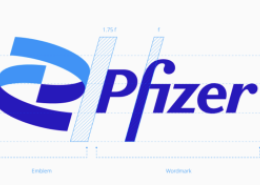Pfizer Announces Oral Tofacitinib, an Investigational JAK Inhibitor, Meets Primary and Key Secondary Endpoints in Two Pivotal Phase 3 Ulcerative Colitis Trials
Detailed Results from OCTAVE Induction 1 and 2 Presented During Oral Session at 11th Congress of ECCO
Pfizer Inc. (NYSE:PFE) announced today the oral presentation of detailed results from the first two pivotal Phase 3 studies from the Oral Clinical Trials for tofAcitinib in ulceratiVE colitis (OCTAVE) program at the 11th Congress of ECCO. Results from OCTAVE Induction 1 and OCTAVE Induction 2, evaluating the efficacy and safety of oral tofacitinib 10 mg twice daily (BID) in inducing remission in adult patients with moderately to severely active ulcerative colitis (UC), were presented during the Scientific Session 7: ECCO Fellowships & Grants (abstract #A-1213, Oral presentation #19).
“Ulcerative colitis can be a difficult disease to manage, as many patients fail or become intolerant to conventional therapies,” said Geert D’Haens, MD, PhD, Professor of Gastroenterology at The Academic Medical Center (AMC), University of Amsterdam, and study investigator. “We are encouraged by the results from the OCTAVE Induction studies, as they showed that in these trials oral tofacitinib reduced the symptoms of moderate to severe ulcerative colitis and induced remission of the disease. What’s more, these results were seen in patients who were previously treated with tumor necrosis factor inhibitors (TNFis) as well as those who had not received treatment with TNFis. And, improvements in symptoms were observed as early as week 2, the first time point it was measured.”
Both OCTAVE Induction 1 and OCTAVE Induction 2 met their primary endpoint. At Week 8, a significantly greater proportion of patients receiving tofacitinib 10 mg BID were in remission as compared to placebo, 18.5% (n=88) versus 8.2% (n=10), respectively (95% Confidence Interval (CI); 4.3, 16.3) in OCTAVE Induction 1. The results from OCTAVE Induction 2 were consistent, with a significantly greater proportion of patients receiving tofacitinib 10 mg BID in remission as compared to placebo, 16.6% (n=71) versus 3.6% (n=4), respectively (95% CI; 8.1, 17.9) at Week 8. Remission was defined as a Mayo score of 2 points or lower, with no individual subscore exceeding 1 point, and a rectal bleeding subscore of 0.
In addition, a significantly greater number of patients receiving tofacitinib 10 mg BID achieved mucosal healing at Week 8 as compared to placebo, the key secondary endpoint in both studies. In OCTAVE Induction 1, 31.3% (n=149) of patients receiving tofacitinib 10 mg BID achieved mucosal healing as compared to 15.6% (n=19) of patients treated with placebo (95% CI; 8.1, 23.4) at Week 8. Similar results were seen in OCTAVE Induction 2 with 28.4% (n=122) of patients receiving tofacitinib 10 mg BID achieving mucosal healing as compared to 11.6% (n=13) of patients treated with placebo (95% CI; 9.5, 24.1) at Week 8. Mucosal healing is defined by Mayo endoscopic subscore of 0 or 1.
Safety findings for tofacitinib in OCTAVE Induction 1 and Induction 2 were similar to those observed in other tofacitinib investigational clinical trials. Across both studies, a similar proportion of patients in the tofacitinib groups and the placebo groups reported an adverse event (AE) or serious AE (SAE) through Week 8. In OCTAVE Induction 1, rates of AEs and SAEs were 56.5% and 3.4% in the tofacitinib 10 mg BID group compared to 59.8% and 4.1% of patients in the placebo group, respectively. In OCTAVE Induction 2, rates of AEs and serious AEs were 54.1% and 4.2% in the tofacitinib 10 mg BID group compared to 52.7% and 8.0% in the placebo group, respectively. In OCTAVE Induction 1 and 2, treatment-emergent AEs were reported in 56.5% (259) and 54.1% (232) of patients taking tofacitinib 10 mg BID, as compared to 59.8% (73) and 52.7% (59) of patients in the placebo group, respectively. In both OCTAVE Induction studies, the most common AE leading to discontinuation across all treatment groups was UC flare. In OCTAVE Induction 1 and 2, rates of discontinuations due to AEs were 3.8% and 4.0% in the tofacitinib 10 mg BID treatment group versus 1.6% and 7.1% in the placebo group, respectively.
About the OCTAVE Clinical Development Program
The OCTAVE global clinical development program includes three Phase 3 studies, OCTAVE Induction 1, OCTAVE Induction 2, and OCTAVE Sustain, as well as a long-term extension trial, OCTAVE Open. We expect that these four studies will form the potential submission package to regulatory authorities for a potential UC indication.
OCTAVE Induction 1 and OCTAVE Induction 2 are two identical Phase 3 placebo-controlled studies evaluating induction of remission by oral tofacitinib 10 mg BID in adult patients with moderately to severely active UC.
OCTAVE Sustain is a Phase 3 placebo-controlled study evaluating oral tofacitinib 10 mg and 5 mg BID as maintenance therapy in adult patients with moderately to severely active UC. Results for OCTAVE Sustain are anticipated by the end of 2016.
OCTAVE Open is an ongoing open-label extension study designed to assess the safety and tolerability of tofacitinib 10 mg and 5 mg BID in patients who have completed or who have had treatment failure in OCTAVE Sustain or who were non-responders upon completing OCTAVE Induction 1 or 2.
About Ulcerative Colitis
UC is a chronic, often debilitating inflammatory bowel disease that affects millions of people worldwide.1,2,3 It is believed that UC is the result of complex interactions between multiple factors that include the environment, genetic predisposition, immune response, and the gut microbiome in the colon or intestines. 4 It can cause abdominal pain, fever, weight loss and chronic, bloody diarrhea. UC can have an effect on work, family and social activities. 5 In up to one-third of patients with UC, treatment is not completely successful or complications arise. Under these circumstances, surgery to remove the colon (colectomy) may be considered. Even after surgery, certain symptoms of UC may still persist. 6,7,8
About XELJANZ and XELJANZ XR
XELJANZ® (tofacitinib citrate)/XELJANZ® XR (tofacitinib citrate) extended-release is a prescription medicine called a Janus kinase (JAK) inhibitor.
As the developer of XELJANZ/XELJANZ XR, Pfizer is a leader in JAK innovation.
XELJANZ is approved in more than 45 countries around the world for the treatment of moderate to severe RA as a second-line therapy after failure of one or more disease-modifying antirheumatic drugs (DMARDs).
Pfizer is committed to advancing the science of JAK inhibition and enhancing understanding of XELJANZ through a robust clinical development program. The efficacy and safety profile of XELJANZ has been studied in approximately 6,200 patients with moderate to severe RA, amounting to more than 19,400 patient-years of drug exposure in the global clinical development program.
XELJANZ/XELJANZ XR U.S. Label Information
XELJANZ/XELJANZ XR is a prescription medicine called a Janus kinase (JAK) inhibitor. XELJANZ/XELJANZ XR is used to treat adults with moderately to severely active rheumatoid arthritis in which methotrexate did not work well. XELJANZ/XELJANZ XR may be used as a single agent or in combination with methotrexate (MTX) or other non-biologic disease-modifying antirheumatic drugs (DMARDs). Use of XELJANZ/XELJANZ XR in combination with biologic DMARDs or potent immunosuppressants, such as azathioprine and cyclosporine is not recommended.
Important Safety Information
It is not known if XELJANZ/XELJANZ XR will harm an unborn baby. To monitor the outcomes of pregnant women exposed to XELJANZ/XELJANZ XR, a registry has been established. Physicians are encouraged to register patients and pregnant women are encouraged to register themselves by calling 1-877-311-8972.
Please click the direct link to the full prescribing information for XELJANZ/XELJANZ XR, including boxed warning and Medication Guide: http://labeling.pfizer.com/ShowLabeling.aspx?id=959.
Pfizer Inc.: Working together for a healthier world®
At Pfizer, we apply science and our global resources to bring therapies to people that extend and significantly improve their lives. We strive to set the standard for quality, safety and value in the discovery, development and manufacture of healthcare products. Our global portfolio includes medicines and vaccines as well as many of the world's best-known consumer healthcare products. Every day, Pfizer colleagues work across developed and emerging markets to advance wellness, prevention, treatments and cures that challenge the most feared diseases of our time. Consistent with our responsibility as one of the world's premier innovative biopharmaceutical companies, we collaborate with health care providers, governments and local communities to support and expand access to reliable, affordable health care around the world. For more than 150 years, Pfizer has worked to make a difference for all who rely on us. For more information, please visit us at www.pfizer.com. In addition, to learn more, follow us on Twitter at@Pfizer and @Pfizer_News, LinkedIn, YouTube and like us on Facebook at Facebook.com/Pfizer.
DISCLOSURE NOTICE: The information contained in this release is as of March 18, 2016. Pfizer assumes no obligation to update forward-looking statements contained in this release as the result of new information or future events or developments.
This release contains forward-looking information about a potential new indication for XELJANZ for the treatment of adult patients with moderate to severe active UC (the “potential indication”), including its potential benefits, that involves substantial risks and uncertainties that could cause actual results to differ materially from those expressed or implied by such statements. Risks and uncertainties include, among other things, the uncertainties inherent in research and development, including the ability to meet anticipated clinical trial commencement and completion dates and regulatory submission dates, as well as the possibility of unfavorable clinical trial results, including unfavorable new clinical data and additional analyses of existing clinical data; whether and when any applications for XELJANZ may be filed with regulatory authorities in any jurisdictions for the potential indication; whether and when regulatory authorities in any such jurisdictions may approve such applications, which will depend on the assessment by such regulatory authorities of the benefit-risk profile suggested by the totality of the efficacy and safety information submitted; decisions by regulatory authorities regarding labeling and other matters that could affect the availability or commercial potential of XELJANZ and XELJANZ XR; and competitive developments.
A further description of risks and uncertainties can be found in Pfizer’s Annual Report on Form 10-K for the fiscal year ended December 31, 2015 and in its subsequent reports on Form 10-Q, including in the sections thereof captioned “Risk Factors” and “Forward-Looking Information and Factors That May Affect Future Results”, as well as in its subsequent reports on Form 8-K, all of which are filed with the U.S. Securities and Exchange Commission and available at www.sec.gov and www.pfizer.com.
1 Loftus, E. Clinical Epidemiology of Inflammatory Bowel Disease: Incidence, Prevalence, and Environmental Influences. Gastroenterology 2004;126:1504–1517
2 Kappelman MD, et al. Recent Trends in the Prevalence of Crohn’s Disease and Ulcerative Colitis in a Commercially Insured US Population. Dig Dis Sci. 2013;58:519–525 [p519/col2/par1/ln1-2]
3 Molodecky NA, et al. Gastroenterol. 2012;142(1):46-54. 3. Langholz E. Ther Adv Gastroenterol. 2010;3(2):77-86.
4 Burisch J, et al. The burden of inflammatory bowel disease in Europe. Journal of Crohn’s and Colitis. 2013; 7:322-337
5 Louis E, Roughly A, Thakkar R, et. al. Impact of ulcerative colitis on patient quality of life in a real-world clinical setting. Presented at ECCO Congress 2013, Vienna, Austria. P180. https://www.ecco-ibd.eu/index.php/publications/congress-abstract-s/abstracts-2013/item/p180-impact-of-ulcerative-colitis-on-patient-quality-of-life-in-a-real-world-clinical-setting.html. [p1/results/ln7-9]
6 Landy J, Hart A.L. Commentary: short-term efficacy of tacrolimus in steroid-refractory ulcerative colitis. Alimentary Pharmacology Therapeutics. 2013 Feb. Available at http://www.ncbi.nlm.nih.gov/pubmed/23336680. Accessed August 8, 2015. [P493/Col1/Par1/Ln3-6]
7 Travis S P, Farrant J M, et al. Predicting outcome in severe ulcerative colitis. Gut 1996. Available athttp://www.ncbi.nlm.nih.gov/pubmed/8984031. Accessed August 8 2015. [P909/Col1/Par4/Ln 1-4]
8 Triantafillidis J, Merikas E, Georgopoulos F. Current and emerging drugs for the treatment of inflammatory bowel disease. Drug Design, Development and Therapy 2011. Available athttp://www.researchgate.net/publication/51107773. Accessed August 11, 2015.
Media:
Steven Danehy, 978-273-3946
Steven.Danehy@pfizer.com
or
Investors:
Chuck Triano, 212-733-3901
Charles.E.Triano@pfizer.com








